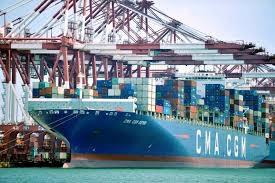|
The President ordered a review of critical supply chains in February requesting reports from executive agencies within a hundred days. More detailed analysis and evaluation is anticipated within a year addressing deficiencies in domestic manufacturing with recommend remedial policies.
The Department of Commerce is aware of unfair trade practices from a number of foreign nations. The 2020 Phase-One Trade Agreement with China incorporated provisions to make progress on reducing government subsidies to quasi-state and corporate entities and coercive transfer of intellectual property.

According to an article in Reuters, the U.S. was not looking to wage a trade war, but the strike force would focus on targeted products. The Defense Production Act will be used to expedite manufacture of up to a hundred critical drugs and efforts are in progress to re-shore production of computer chips. A task force will be established to evaluate home building, construction and transportation to reduce the prospect of future inflation. The Department of Commerce considers it necessary to widen the supply chain for crucial products to include allies and partners to reduce reliance on “geopolitical competitors”.
Establishing a trade war with China could have severe implications on export of agricultural commodities as noted in 2018 and extending in to 2019. Current importation of soybeans, corn, poultry and meat products by China are a reflection more of domestic need rather than any magnanimity of the part of the world’s second largest economy. Without extreme pressure, China will not change its trade policies since the nation is committed to dominance in trade in Asia and competition, fair and unfair with the U.S. in all markets, consistent with their national aspirations.
|